The Lasallian Social Enterprise for Economic Development (LSEED) Center is the first in the region to do a full cycle of programs from formation to acceleration through social entrepreneurship. It highlights the institutional commitment of Lasallian Mission to be of service to society especially the poor and the marginalized. At present, the LSEED Center expands its efforts both at the national and regional levels by capacitating academic institutions in integrating social entrepreneurship as part of curriculum, social engagement, and research. The LSEED Center currently implements a total of 12 programs with 35 initiatives local and international particularly in areas of curricular and co-curricular, formation and social enterprise development, research, advocacy, internationalization, internship, volunteerism, as well as incubation and acceleration. This enabled the Center to work with over 100 universities and organizations globally engaging over 15000 individuals directly through its programs. It is worth noting that an independent external evaluation based on the criteria of criteria developed for Organization for Economic Co-operation and Development's (OECD) is Highly Satisfactory (Highest) in 5 areas namely level of relevance, coherence, effectiveness, efficiency, and impact of programs. The Center is currently part of national and regional networks on social entrepreneurship and sustainability particularly in policy advocacy and program development. It also initiated a regional program on the localization of the United Nations’ Sustainable Development Goals in ASEAN plus Japan, China, and South Korea. Its international research colloquium is now in its 3rd year producing knowledge products in sustainability.

RUNNER-UP
SDG Initiative of the Year Award
Lasallian Social Enterprise for Economic Development
RUNNER-UP SDG Initiative of the Year Award
De La Salle University - Philippines
"Transforming Communities through Lasallian Social Entrepreneurship"

Summary
Key People

Dr. Norby Roque Salonga
Founding Director
Lasallian Social Enterprise for Economic Development Center,
De La Salle University
Images
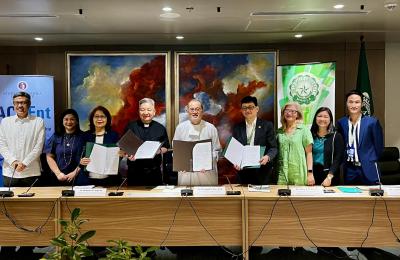
Partnership of Ateneo and La Salle
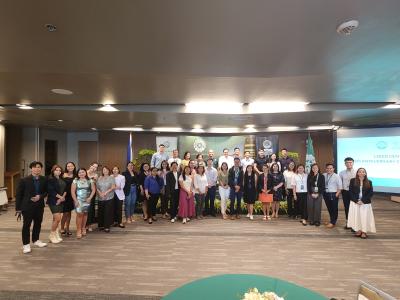
LSEED Center's anniversary celebration
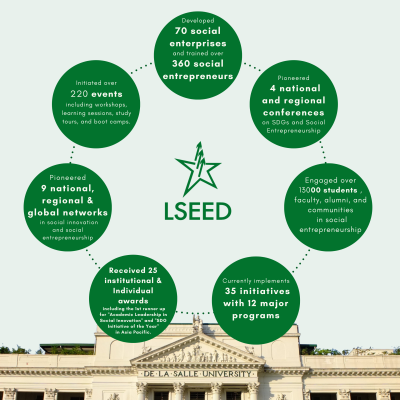
LSEED Center's anniversary milestones
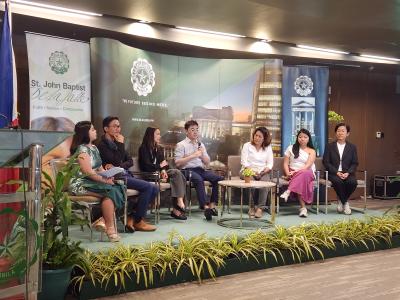
Talks of Lasallian social entrepreneurs during LSEED Center's anniversary
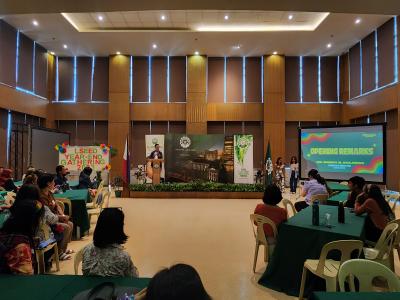
LSEED Center's Year-end celebration
IMPACT STORY
Impacting lifes
By leading national and regional efforts while actively involving stakeholders representing several sectors, the LSEED Center has managed to successfully develop over 70-SDG themed social enterprises with 400 social entrepreneurs, initiated 200 events/workshops, engaged over 15,000 student/faculty/alumni/community and 100 organizations through its 12 major programs with 35 initiatives local and international. In terms of its effort to mainstream social entrepreneurship with other institutions, LSEED Center co-leads a total of 10 national/regional/global networks and coalitions and pioneered 5 national/international conferences and training programs involving countries in ASEAN+3. The Center and its key stakeholders have received a total of 28 awards/recognition.
With regard to the impact, increased in income of community members (85 % of community-based social enterprises), SE program completion rate of 100 % retention, capacity building & skills development of its key stakeholders, creational of regional network which capacitates institutions, institutionalization of social entrepreneurship at the national level though policy/program advocacy, and capability building of its partner organizations are some of highlights of LSEED Center’s efforts. Institutional evaluation of Outstanding/Excellent for both the Center and its personnel also validates the impact and quality of programs of LSEED.
As the institution expands its programs, it envisions to capacitate and influence more organizations, particularly academic institutions and community-based organizations in sustainability and social entrepreneurship. Sustained partnership with national government and international organizations is also part of its priority in order to create and contribute to building an inclusive social enterprise ecosystem in the country and in the region.
LEARNINGS
Lessons learned
LSEED Center’s humble beginnings from being a component of the De La Salle University’s Sustainable Development Goals (SDG) Localization Project to what it is today as a Center, is a clear proof that there is a need for social entrepreneurship in the academe. Its role in forming future leaders and social entrepreneurs is part pivotal not only in the sector’s growth but also in promoting a more inclusive development. The journey was also a learning experience for DLSU, especially when the institution decided to institutionalize social entrepreneurship efforts and allocate resource support in order to implement LSEED Center’s programs, local and international. It was also the moment when the Center embarked on sustaining its partnership with local/international organizations to mobilize resources (funding, technical support, network building) in the development and implementation of its programs. This enabled LSEED to expand both its programs and stakeholders with around 4000 individuals yearly.
Another design of sustainability is the Involvement of alumni and the private sector whose thrusts and mission are aligned with the Center. This is on tap of LSEED’s offering of certificate courses to those who are interested to formally educate themselves on social innovation and social entrepreneurship.
Institutionalization of its programs internal and external (public & private) is one of the significant contributions of the Center in ensuring sustainability. Its capacity to expand allows other organizations to develop their programs in social entrepreneurship with LSEED Center’s concept as a guide. This provides more opportunity for learning and collaboration among institutions/organizations.
FUTURE PLANS
What's coming?
The commitment of the Center to support and lead in the national and international initiatives that mainstream social entrepreneurship has been sustained for almost a decade now. At present, social entrepreneurship is included in the national government’s Micro, Small, and Medium Enterprise Development Plan for 2023-2028 and programs of select local and national government agencies. These efforts will further strengthen the foundation of growth of the social enterprise sector in the years to come. Likewise, the ongoing effort to profile the social enterprise sector through the Poverty Reduction Through Social Entrepreneurship Coalition will help assess the current context and needs of various social enterprise programs. The result of the said initiative will help both government and private sector to develop programs that are aligned with the needs of the growing sector.
Policy advocacy and program development efforts with public and private sectors will further institutionalize the efforts in social entrepreneurship in the long run. It makes key stakeholders more actively involved and committed. The chairmanship of LSEED Center of a national organization of Higher Education Institutions promoting SE/SI is another sustainable effort particularly in the area of human development for future social entrepreneurs, development practitioners, and advocates. This mobilizes the expertise and resources of HEIs in mainstreaming social entrepreneurs in three key areas namely academic, research, and social engagement. At present, around 30 universities/schools are now involved in this advocacy on social entrepreneurship.

